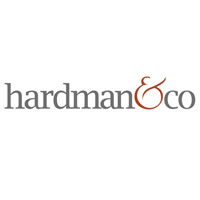90% of PHP’s income is backed by the UK or Republic of Ireland (RoI) governments. Occupancy consistently exceeds 99%. We are confident investors will continue to seek out REITs with strong asset-class focus, particularly categories that provide security of rising income. PHP achieves all this and its dividend per share growth rate is accelerating as a result. In a total contrast to the wider real estate market, rent reviews on PHP assets are accelerating upwards. PHP’s growth avenues are expanding. The March 2019 merger with MedicX Fund – as well as a £4m p.a. synergy efficiency and additional investment assets of more than £800m – has added complementary routes to purchase new assets.
- What PHP invests in: PHP purchases modern standing stock, and forward-funds repeat development partners. These assets are localised hubs, providing community-based GP surgeries and other closely related medical services. The gross value is £2.3bn and the contracted rent roll now stands at £125.6m.
- Growth in 2019 sees step jump expansion: PHP’s 14 March 2019 merger with complementary MedicX Fund effectively adds well over £800m of investment assets of as high a quality as PHP’s, at nil stamp duty cost, bringing synergy efficiencies and taking PHP’s investor offering to a new level.
- Valuation: The shares trade at a premium to EPRA NAV. At the latest balance sheet, assets were valued at a 4.85% (unchanged) net initial yield (NIY), but portfolios of this asset class consistently change hands at lower yields (higher prices). Investors in quoted real estate consistently favour focused investment strategies.
- Risks: No development risk is taken on the forward funding, and the strategy focuses tightly on this one sector. 2018 DPS cash cover was over 100%, and grew that year. Undrawn facilities exceed £200m. PHP states a 2.7% marginal interest cost, vs. a 3.9% average cost in 2018, so yield pick-up continues to trend upwards.
- Investment summary: In addition to 23 years of unbroken dividend growth, expansion into higher cash-generating RoI assets and a falling debt cost enhance EPRA EPS. Incremental management fees are below portfolio averages. Given these items, the enlargement through the merger, and the asset yield, recent acquisitions have been EPS-accretive. The merger led to strong upgrades.


